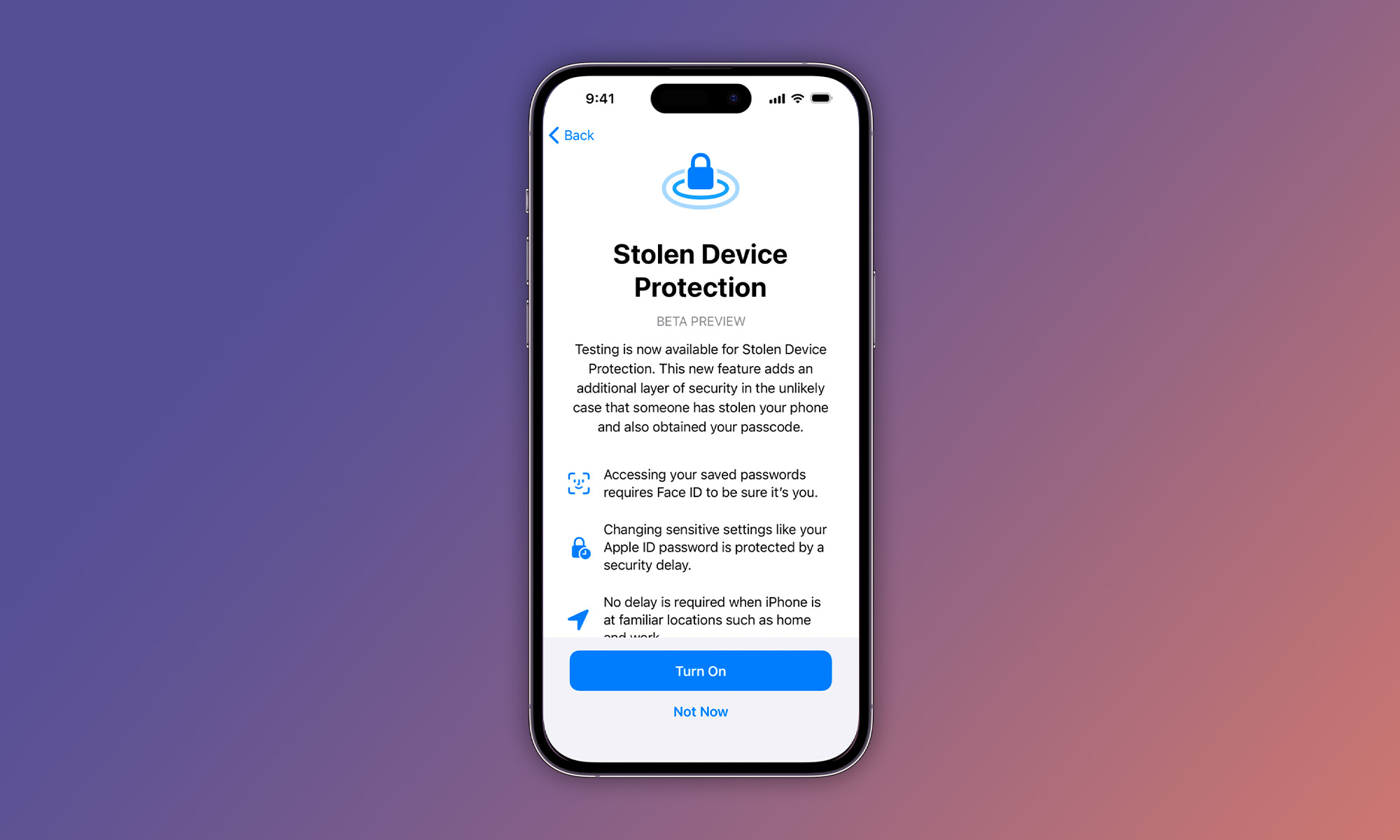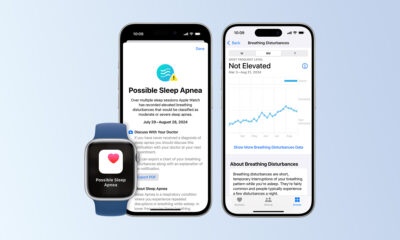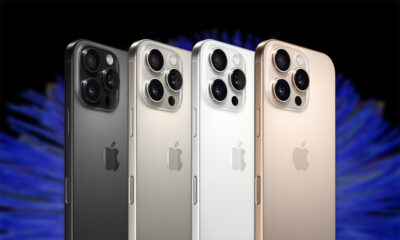News
Apple Releases iOS 17.3 Featuring Stolen Device Protection
The new theft protection feature aims to safeguard personal data in the event an iPhone or iPad is stolen.

Apple has rolled out the latest incremental system updates to its mobile and desktop operating systems, with iOS 17.3 bringing a noteworthy feature to iPhones and iPads dubbed Stolen Device Protection, aimed at safeguarding personal data in the event of theft.
In the unfortunate event of your iPhone or iPad being stolen, iOS 17.3 allows you to bar unauthorized access by forcing Face ID or Touch ID verification. The security measure remains effective even if a thief has your passcode and should render any attempts to access your device futile.
As an added security layer, iOS 17.3 introduces an automatic one-hour security delay before permitting passcode modifications if the device is detected in an unfamiliar location. While Stolen Device Protection may not entirely deter thieves, it significantly complicates their efforts.
Also Read: Samsung Unpacked 2024: Key Product Announcements
iOS 17.3 also introduces minor enhancements such as collaborative playlists in Apple Music, support for AirPlay in hotels, improved crash detection, and a collection of new wallpapers commemorating Black History Month.
The following iOS devices support iOS 17.3:
- iPhone Xs
- iPhone Xs Max
- iPhone XR (from 2018 onwards)
- iPhone 11
- iPhone 12
- iPhone 13
- iPhone 14
- iPhone 15
- iPhone SE (2nd and 3rd-gen)
Meanwhile, iPadOS 17.3 extends support to various models, including:
- iPad Mini (5th-gen and later)
- Standard iPad (6th-gen and later)
- iPad Air (3rd-gen and later)
- All iPad Pro models
Users can check for the update in their system settings.
To enable Stolen Device Protection, navigate to the “Face ID & Passcode” section within the Settings menu. Activating it is as simple as scrolling down and toggling the “Stolen Device Protection” switch from “Off” to “On”. No further configuration is necessary.
News
Samsung Smart Glasses Teased For January, Software Reveal Imminent
According to Korean sources, the new wearable will launch alongside the Galaxy S25, with the accompanying software platform unveiled this December.

Samsung appears poised to introduce its highly anticipated smart glasses in January 2025, alongside the launch of the Galaxy S25. According to sources in Korea, the company will first reveal the accompanying software platform later this month.
As per a report from Yonhap News, Samsung’s unveiling strategy for the smart glasses echoes its approach with the Galaxy Ring earlier this year. The January showcase won’t constitute a full product launch but will likely feature teaser visuals at the Galaxy S25 event. A more detailed rollout could follow in subsequent months.
Just in: Samsung is set to unveil a prototype of its augmented reality (AR) glasses, currently in development, during the Galaxy S25 Unpacked event early next year, likely in the form of videos or images.
Additionally, prior to revealing the prototype, Samsung plans to introduce…
— Jukanlosreve (@Jukanlosreve) December 3, 2024
The Galaxy Ring, for example, debuted in January via a short presentation during Samsung’s Unpacked event. The full product unveiling came later at MWC in February, and the final release followed in July. Samsung seems to be adopting a similar phased approach with its smart glasses, which are expected to hit the market in the third quarter of 2025.
A Collaborative Software Effort
Samsung’s partnership with Google has played a key role in developing the smart glasses’ software. This collaboration was first announced in February 2023, with the device set to run on an Android-based platform. In July, the companies reiterated their plans to deliver an extended reality (XR) platform by the end of the year. The software specifics for the XR device are expected to be unveiled before the end of December.
Reports suggest that the smart glasses will resemble Ray-Ban Meta smart glasses in functionality. They won’t include a display but will weigh approximately 50 grams, emphasizing a lightweight, user-friendly design.
Feature Set And Compatibility
The glasses are rumored to integrate Google’s Gemini technology, alongside features like gesture recognition and potential payment capabilities. Samsung aims to create a seamless user experience by integrating the glasses with its broader Galaxy ecosystem, starting with the Galaxy S25, slated for release on January 22.


























